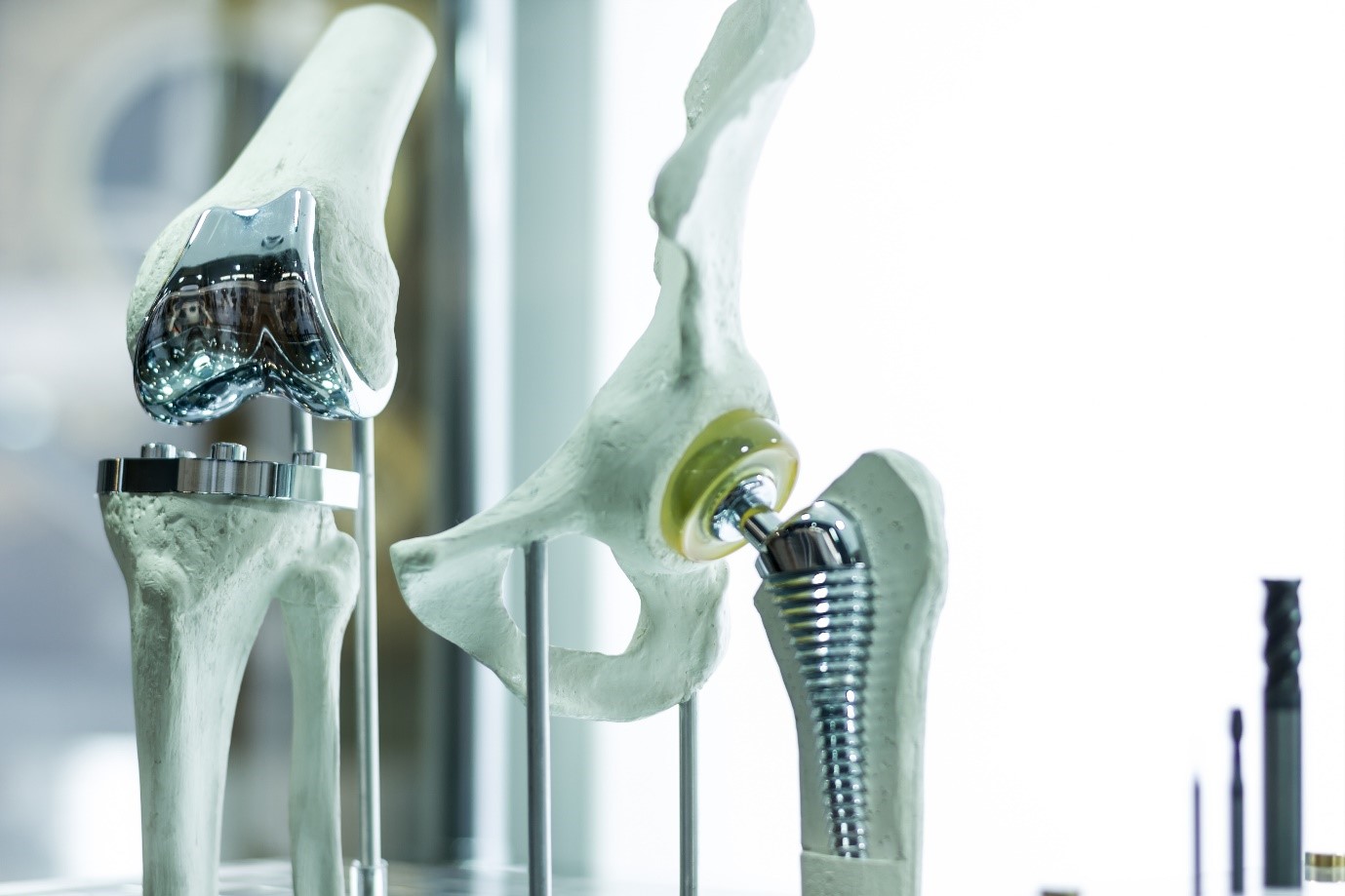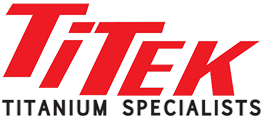Why is titanium used for medical applications?
Titanium is the favoured metal of the medical industry and has been used since the 1950s for dental implants, hearing aids, hip replacements and cardiovascular devices – but what makes titanium so special?
Characteristics of titanium
Titanium is 50% lighter but equally as strong as stainless steel. Being lightweight makes it suitable for medical implants as it can be easily inserted into the human body.

Medical professionals favour titanium for its biocompatibility, which allows it to come into contact with living systems and bodily fluids with no adverse effect.
Titanium is completely inert and allows osseointegration – the process of bones and tissue bonding with implants naturally. It forms a protective oxide film that resists tissue and fluid corrosion.
Titanium is also non-ferromagnetic meaning that implants made from titanium don’t interfere with MRI machines.
Between 1920 and 1950, zinc, copper, nickel, iron and steel implants resulted in serious bodily reactions which is why titanium rods are so popular today. Titanium is a well sought after metal that is suitable for inner body devices and internal fixations, replacing parts of the body and treating fractures effectively.
Medical titanium
The two most common types of medical titanium are 6Al/4V and 6Al/4V ELi.
We supply the 6Al/4V AMS 4928 titanium bars which are made up of 90% titanium, 6% aluminium and 4% vanadium. This alloy promotes osseointegration and is available to purchase in a wide range of sizes and weights.
The 6Al/4V ELi bars are also used by the medical industry and are available to order, here at Ti-Tek. They are alpha-beta alloys that contain reduced levels of oxygen and improve ductility and fracture toughness.
Importance of medical titanium
Titanium is used for various applications within the field of medicine and dentistry, whether it be to save lives, alleviate pain or provide relief.
When used for medical applications, titanium lasts decades, reducing the need for repairs and replacements and also resumes normal life for patients.
Additional medical uses
- Joint replacements
With people living longer and leading more active lifestyles, the demand for hip, knee, shoulder and elbow replacements continues to grow. With more than 1,000 tonnes of titanium being implanted into patients worldwide, each year.
- Prosthetics
Whether it be orthotic callipers or artificial limbs, prosthetics need to be light, tough and resistant to corrosion. Titanium rods and bars can provide a temporary or long-term solution, allowing patients to move comfortably and easily.
- Surgical equipment
A titanium rod can be used to manufacture surgical instruments, such as laser electrodes, dental drills and forceps. The metal resists bacteria, allowing medical staff to carry out procedures correctly and safely.
- Dental implants
Titanium is used in dental implants, crowns, bridges and dentures. It’s introduced to the jaw bone and allows for osseointegration. The new tooth is then built onto the implant and eliminates the appearance of gapped teeth.
Dentists often choose commercially pure titanium as it’s more flexible, however, titanium alloys (like 6Al/4V) – which provide more resistance – can also be used.
To find out more about why the medical industry use titanium, call us on 0121 382 4121 today.
